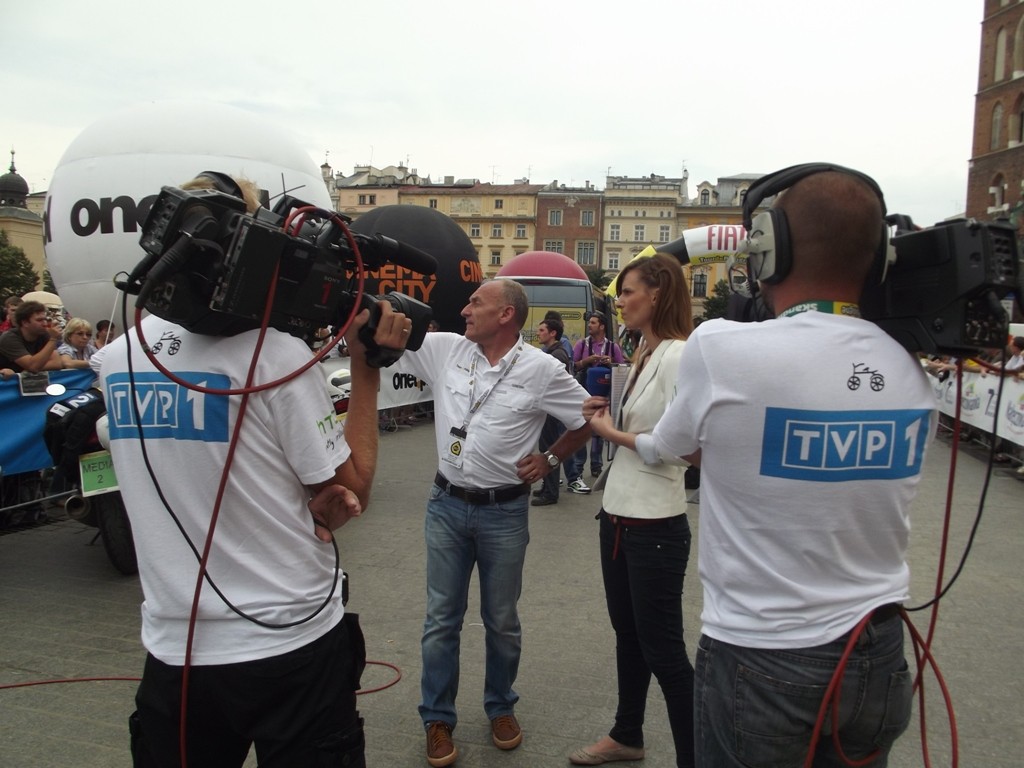Ruling Conservatives to Name Their Stalwarts at the Helm of Public Media in Poland
The Law and Justice (PiS) party, who won last year’s elections in Poland, rushed to adopt legislation in the last days of 2015 allowing them to fully control the public media management. Criticism abounds, but the government doesn’t care.
“You were talking about introducing BBC standards in Polish public media, but in reality you made Russia Today of them.” It was one of many critical remarks opposition MPs made on the night of 29 December 2015 in the Polish Parliament as the ruling Law and Justice (PiS) party expeditiously pushed through the bill allowing the Minister of Treasury to change all executives at public television and radio immediately. The remark was related to Russia Today (RT), Russia’s international broadcaster, known as the mouthpiece of the Russian government.
According to the law, the new bosses of the government media will have no term in office. They can be recalled at any moment for any reason unlike their predecessors who could be fired for specific reasons put forward in law. The new law, discussed for only one night and day in both chambers of Parliament, is supposed to be signed without delay in early January 2016 (and not using the legal three-week reflection time) by the President. At the beginning of 2016 the new CEOs and Supervisory Boards are to be installed at the Polish Television (TVP) and Polish Radio (PR), strong public broadcasters that have 31% and 28% share of the market, respectively.
How to Heal With Pest and Cholera
Other critical voices were equally powerful. “This will be a party television and radio,” said another MP. “Media will get commissars like during the martial law period,” was another remark referring to the 1981-1984 communist rule of Poland by general Jaruzelski. “You cannot cure the media by applying to them pest and cholera,” said the opposition MP Killion Munyama, born in Zambia.
The European Broadcasting Union (EBU), the club of Europe’s public service broadcasters, described the changes in Poland’s public media, particularly the new way appointing their executives, as a “retrograde step”. The Association of European Journalists (AEJ), a journalism NGO, pointed out that in 2012 Poland signed Declaration on Public Service Media Governance, which states among other things: ”[…] public service media must remain independent from political or economic interference and achieve high editorial standards of impartiality, objectivity and fairness”.
The National Broadcasting Council (KRRiT), Poland’s broadcast regulator, has recently recalled a statement of the Polish Constitutional Tribunal from 2005, according to which, independence of public media is defined mostly by their position towards the government.
Yet Another Wrong Approach

________________________________________________
Earlier plans for public media reform in Poland have been postponed, but not abandoned. The seizure of power in public media at the end of last year was only an impromptu move to the more complex changes that are likely to be made at the offices of public broadcaster, which are formally focused on better achieving the “mission” of TVP and PR.
Public television in Poland is being financed more than 70% by commercial sources, mainly advertising. This makes TVP a white elephant among public media in Europe, which tend to be financed through public money. Polish Radio, which relies on advertising for 30% of its budget, better fits the generally accepted public media financing model.
The recent debates about the new public media bill revealed, however, the real intentions of the ruling party PiS toward public media. Instead of focusing on key issues the public broadcaster grapples with, they want to first ensure that they control the broadcaster’s leadership. The PiS has been rather open and cynical about it.
“We hope that finally we will get through to the public with what we are doing. The public media narrative we do not agree with will cease to exist,” said Beata Mazurek, the PiS caucus spokesperson. In simple language, coverage on public media will have to make the PiS happy, first of all.
Some say that is the wrong approach.
“PiS wants to reform public media in an upside down manner,” said Jan Dworak, KRRiT’s president. “First you should secure for them [public media] stable financing, then change their organization and finally find new bosses.”
It seems that the ongoing public media reform in Poland may stop at the most important part: provision of a stable financing system. This is the most complex part, requiring expertise, organization and patience, things that revolutionaries are usually lacking.
Russia Today also needs a lot of money and is much less efficient than Britain’s BBC. That is something that the revolutionaries now reforming public media in Poland have to realize. The sooner, the better.
Photo: Piotr Drabik, Flickr
Andrzej Krajewski

